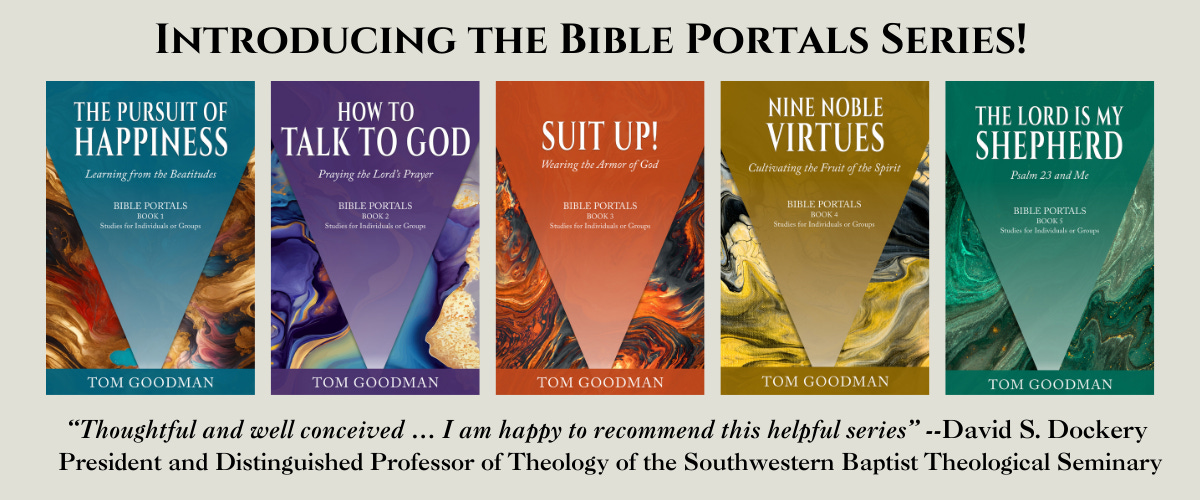Beyond the Vibe: The Real Victory in Jesus
What Christians should celebrate—and what we must never forget—when culture changes
You may have heard commentators talk about a cultural “vibe shift.” But what exactly is it—and what does it mean for Christian outreach?
According to a recent post by Derek Rishmawy (link at the end), the vibe shift is a cultural course correction.
We’ve endured a decade of what he calls the “schoolmarming anarchy” of “Dolores Umbridge wearing a rainbow flag pin.” (IYKYK, Harry Potter fans.) The vibe shift is a frustrated pushback to this, manifesting as “rightward, masculine, semi-religious…, and institutionally unregulated.”
Those of us on the cultural right celebrate this renewed consideration of traditional values. But we must not confuse a cultural course correction with personal spiritual transformation. Even if people come to agree with us about marriage and gender and many other subjects, we still need to call them to Jesus. Rishmawy wisely writes:
“Someone who shows up in church, understands there’s a higher power and a need for spirituality, wants a stable family, and holds some traditional instincts about the existence of two sexes still must repent, believe the gospel, and submit his or her entire moral imagination to Scripture. And that’s just as much a miracle of the Holy Spirit as the conversion of the more progressive ‘nones’ who may still walk through your door.”
Matthew 9:35 tells us that when Jesus looked at the crowds, his heart broke. He saw people as “harassed and helpless, like sheep without a shepherd.” Do you think he feels the same about our city today? Of course.
Rich or poor—if they don’t know him, they’re sheep without a shepherd.
Educated or not—if they don’t know him, they’re sheep without a shepherd.
Politically conservative or otherwise—if they don’t know him, they’re sheep without a shepherd.
So what does Jesus tell us to do? In the very next verse, he says: “Ask the Lord of the harvest, therefore, to send out workers into his harvest field.” The verb is strong—literally, “thrust out.” It’s the same word the Bible uses for casting out a demon.
So, we’re to ask God to “cast out” Christians from their comfortable routines and their familiar little circles so that they can engage with a world that needs gospel conversations.
The fact that many in our culture are experiencing a “vibe shift” is a step in the right direction, frankly. But we don’t want them to stop there. Our goal is to see them “fitting every loose thought and emotion and impulse into the structure of life shaped by Christ” (1 Corinthians 10:5, MSG).
In October and November, I’ll lead a Sunday morning series called Unlocking Faith: Overcoming Obstacles to Belief. We’ll address questions nonbelievers have about Christianity. Things like, “Is Jesus God?” or “How can a reasonable person believe in the miracle stories?” or “Doesn’t Christianity make people intolerant of other faiths?”
Pray for members of our church to bring friends to this series—whether they’ve experienced a vibe shift or not! It’s time to have gospel conversations about these topics.
And when you pray, be ready. God may whisper back to you, as he once did to a man who always closed his prayers with the same words: “Touch our world with your hand.” One Sunday, mid-prayer, the man stopped short and realized: I am that hand.
Indeed.
Tom
Derek Rishmawy has become one of my favorite commentators. You really should read his entire post about what to make of the culture’s “vibe shift.”
Tapestry Threads
Each week in this space, I provide links to articles and podcast episodes that I recommend you check out for yourself.
“In his later years, Kirk [spoke] more directly about Christ. He quoted Scripture on stage, not just in churches but at political rallies. He talked about sin, salvation, judgment, and grace. He told crowds that the chaos in America wouldn’t be healed by winning elections or flipping the Supreme Court but by repentance and renewal. He urged young men not just to vote but to pray, not just to build households but to anchor them in the gospel.” In the Christianity Today piece, "Why Charlie Kirk Landed with Young Men Like Me."
“Before the [Charlie Kirk'] memorial was all said and done, there were both wheat and chaff taking turns on that stage. So it was definitely a mixture. But there was some real Christian gospel in there, and people can tell the difference. I tuned into MSNBC to see what they were saying about the memorial. I kid you not. They were discussing whether Erika Kirk’s vision of ‘love your enemies’ would win out or Trump’s ‘hate your enemies.’ Even the commentators on MSNBC could absolutely see the difference between the two.” Denny Burk’s observations of Charlie Kirk’s memorial service
Were the victims of Nashville, Minneapolis, and Utah martyrs?
Taking Jimmy Kimmel off the air (albeit temporarily) “in and of itself is no great loss to comedy…. Kimmel’s brand of resistance-era humor has aged like milk. His falsehood about Kirk’s alleged killer insults the intelligence of his audience. But when a network drops high-profile talent hours after the FCC chairman makes a barely veiled threat, then it’s no longer just a business decision…. We don’t need government commissioners to protect us from hot takes and dumb jokes…. Remember that Democrats will wield this power again. And when they do, they will play by the new rules that … the Trump administration just established.” The Free Press



